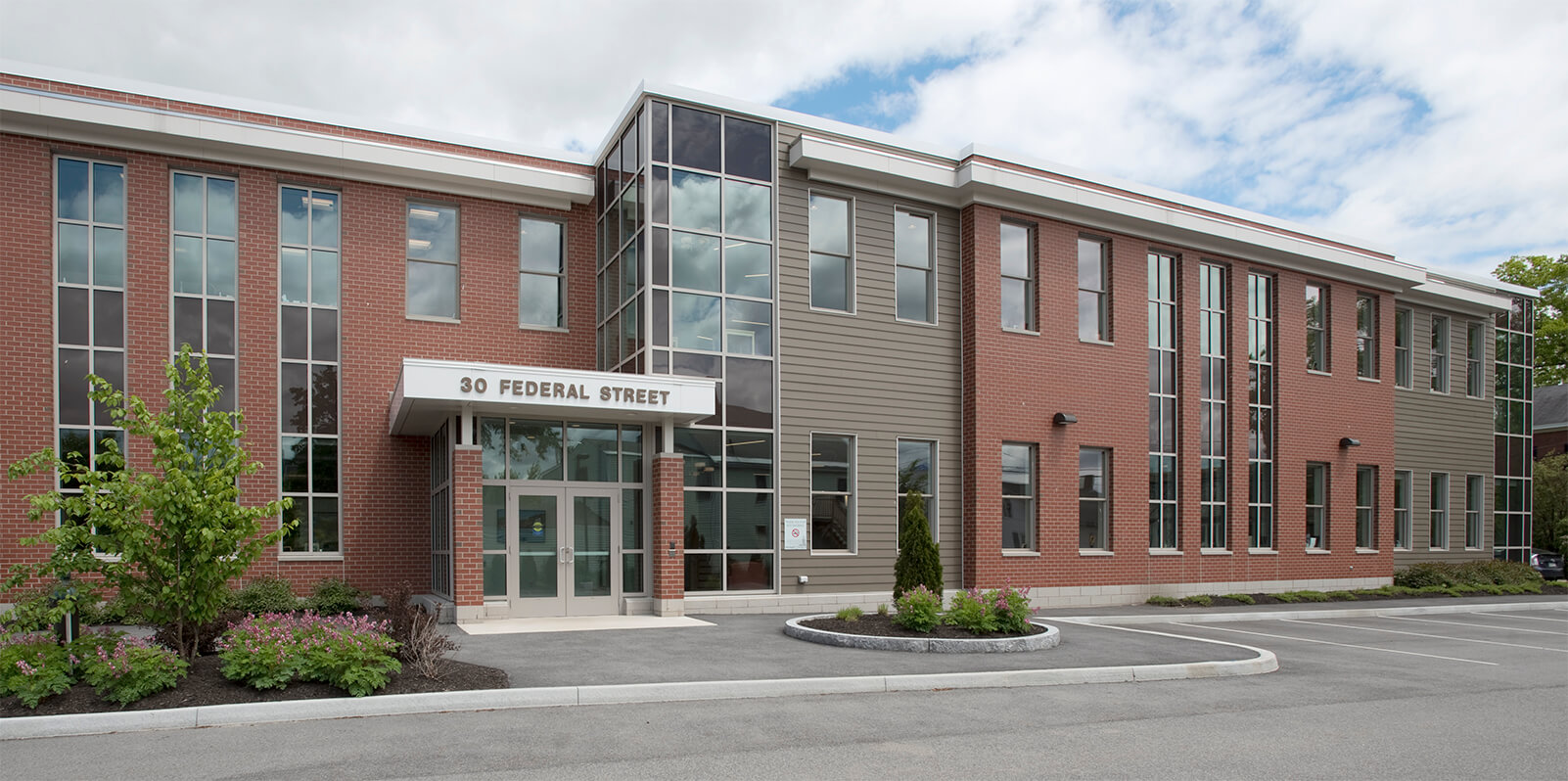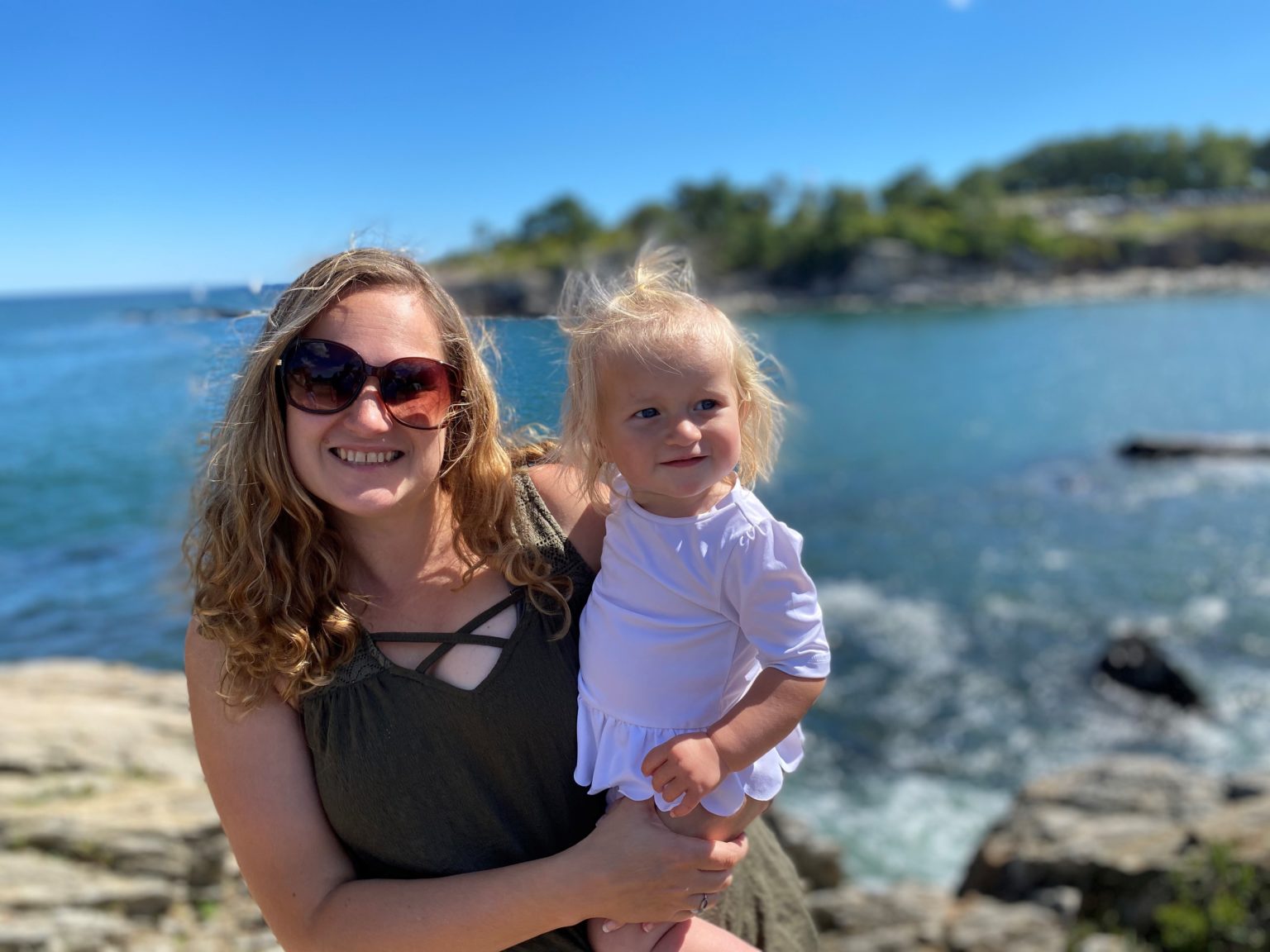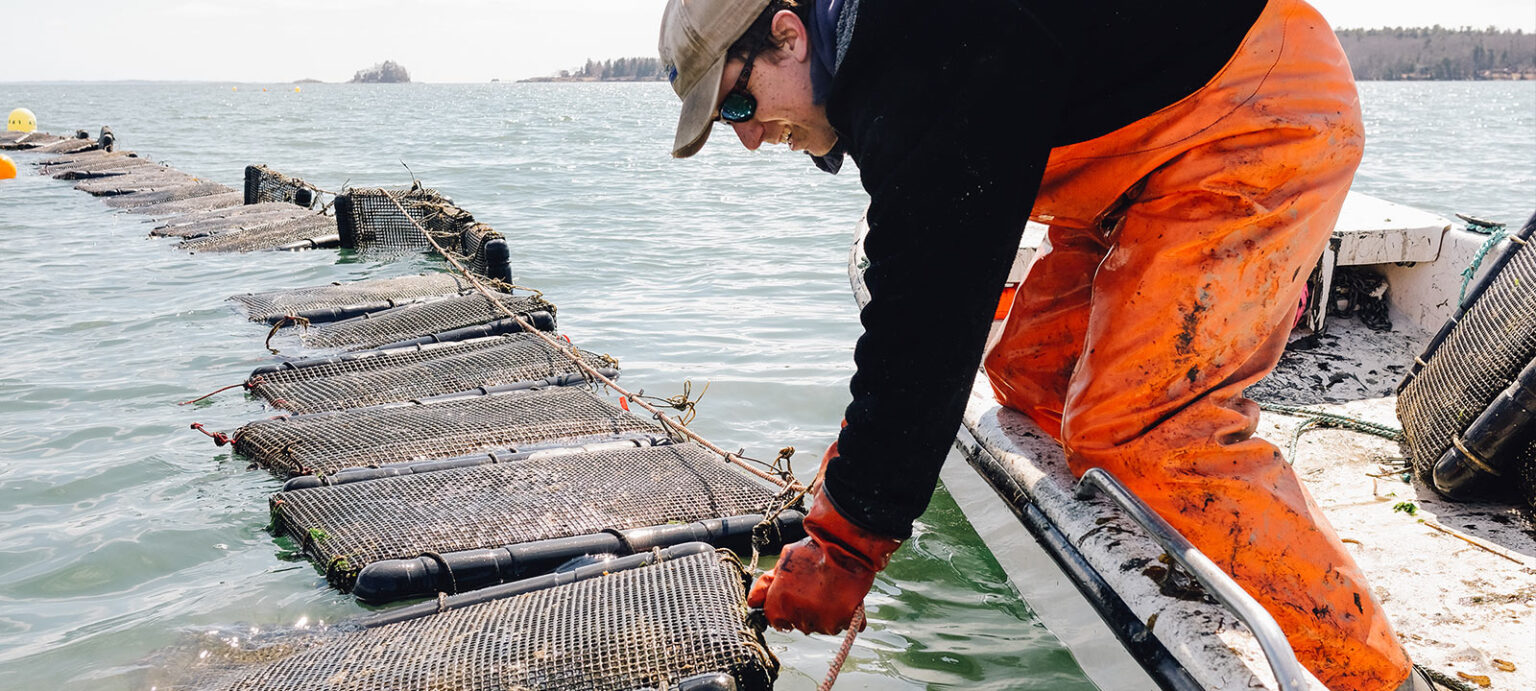April 19, 2022
CEI Discloses Greenhouse Gas Emissions for Its Small Business Lending Portfolio
Maine community development leader joins two peers to create a guide for CDFIs to apply greenhouse gas accounting methodology from Partnership for Carbon Accounting Financials (PCAF)
APRIL 19, 2022 – Brunswick, Maine – Coastal Enterprises, Inc. (CEI) announced it has calculated the greenhouse gas emissions for the companies in its small business lending portfolio for the first time, using the methodology developed by the Partnership for Carbon Accounting Financials (PCAF). CEI also collaborated with two other community development financial institutions (CDFIs) – Partner Community Capital and Self-Help Credit Union – to create a step-by-step working guide that financial institutions, and particularly CDFIs, can use to understand the initial steps needed in the greenhouse gas emissions accounting journey.
The emissions associated with CEI’s portfolio as of September 30th, 2020, were 12,641 tons of greenhouse gases, which is the equivalent of driving 2,724 gasoline-powered vehicles for a year. This represents estimated emissions across 343 companies with a total outstanding loan balance of $45.89 million. Read CEI’s full PCAF disclosure online. The other CDFIs’ overall portfolio emissions differ from CEI’s, as each invests in industries and geographies that are unique to their business models and local economies. However, the comparative emission intensity (tons of CO2e emitted per $1MM dollars invested) between CEI and its peers is relatively modest, as CDFIs generally do not invest in the most heavily polluting sectors related to oil, gas and mining.
The movement for financial institutions to disclose their climate impacts has been steadily growing, evidenced most recently by the U.S. SEC proposal for public companies to provide specific climate-related information in their registration statements and annual reports. By disclosing the greenhouse gas emissions that lenders are accountable for through their financing, they can provide investors with they data they need to inform decision making. Further, from a broader portfolio perspective, lenders can identify sectors where targeted financial products or technical assistance could encourage business owners and project developers to incorporate plans for greenhouse gas emission reductions into their business practices.
Ultimately, as financial institutions gain a greater understanding of the carbon impact of their borrowers, they can serve as catalysts for a transition away from fossil fuels and other carbon-intensive sectors. As mission-driven lenders, CDFIs can demonstrate leadership among financial institutions and other community development organizations in addressing climate change. This is a first step. The partnership ultimately aims to facilitate the alignment of the financial industry with The Paris Agreement and reach net zero emissions by 2050.
PCAF is a global initiative led by financial institutions committed to developing a common standard for disclosing the greenhouse gas emissions from their loan and investment portfolios. Over 250 financial institutions, representing more than $71 trillion in assets, have joined the open-access partnership since its inception in 2015. In 2019, CEI participated in a cohort to adapt the European PCAF methodology to the North American market and has been joined in our disclosure commitment by five other CDFIs; Clearwater Credit Union, the New Hampshire Community Loan Fund, Partner Community Capital, Self-Help Credit Union, and the Vermont Community Loan Fund.
“The growing global membership of PCAF is an opportunity to put pressure on the largest financial actors in the world to make cleaner investment decisions and commit to transparent climate disclosures,” said Keith Bisson, President, CEI. “This disclosure establishes a baseline for us to understand our portfolio and Maine’s small business economy, and how we intersect with both as we deepen our mission impact in addressing the climate crisis. It’s an opportunity to hold ourselves and all lenders and investors accountable and, together, move towards a low-carbon future.”
The CDFI industry has long recognized the urgency of the climate crisis. Individually and collectively, CDFIs, as community lenders, are using their economic development expertise to implement climate-conscious approaches to underwriting, reporting and asset management. By integrating carbon accounting, CDFIs can better explore, develop, and initiate incentives (such as interest rate deductions) for environmentally responsible practices in the private business sector. Additionally, as businesses look to decarbonize their operations, CDFIs can provide patient capital and business advice that is tailored to local industry.
As the impact investment movement gains momentum, CDFI investors, such as large institutional banks, will expect CDFIs to comply with these new standards of environmentally responsible investing. Shareholders are insisting on greater reporting of a company’s environmental, social and governance (ESG) impact as part of their investment decisions. CDFIs can be leaders, demonstrating to our investors that community development lenders are first-movers on climate-positive investment and disclosure practices.
PCAF Methodology: Small Business Case Studies
The following infographics walk through the greenhouse gas emissions calculation for two of CEI’s portfolio companies – a child care center and a mixed vegetable farm in Maine. These emissions are calculated using the PCAF methodology and rely on emission estimations based on the borrower’s business sector. The total CO2e emissions attributed to the financing of these companies are typical for our small business portfolio, where two thirds of CEI’s deals result in less than 5 tons of CO2e.
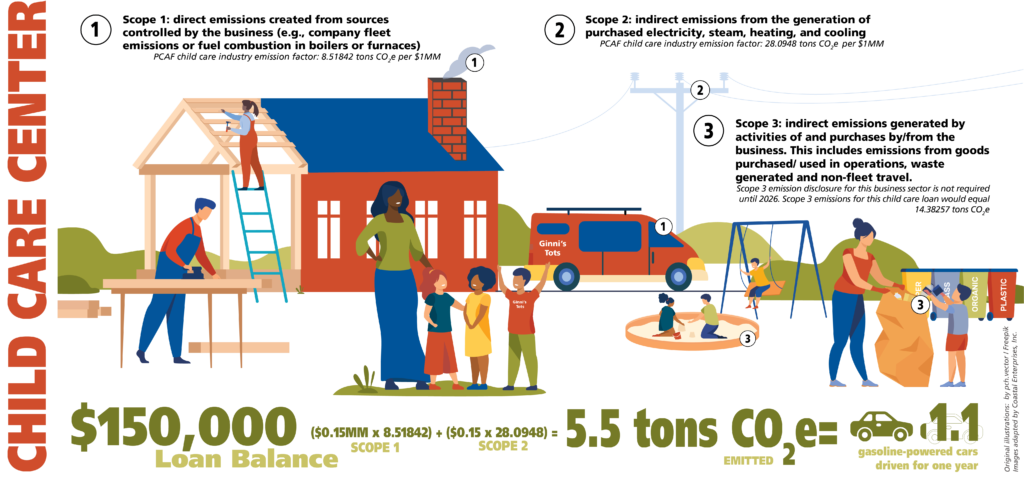
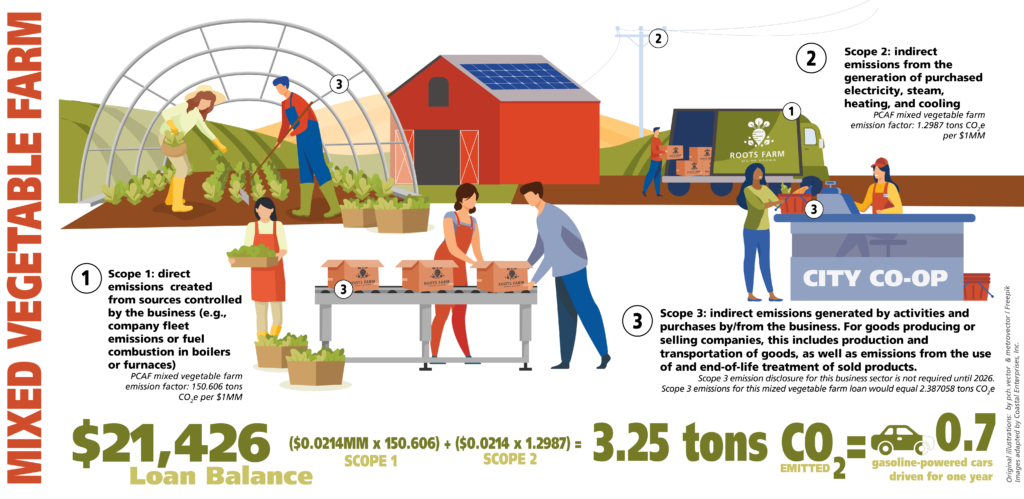
About CEI
Coastal Enterprises, Inc. (CEI) helps to grow good jobs, environmentally sustainable enterprises and shared prosperity in Maine and in rural regions across the country by integrating financing, business and industry expertise, and policy solutions. CEI envisions a world in which communities are economically and environmentally healthy, enabling all people, especially those with low incomes, to reach their full potential. More at www.ceimaine.org.
